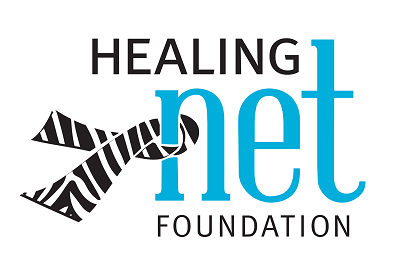Part 5: Leap ahead to 2023, and Khloe's story continues to inspire!
KHLOE IS READY FOR HIGH SCHOOL
Five years ago, at the age of nine, Khloe was one of the 2.8 children in 1 million worldwide who are diagnosed with neuroendocrine cancer each year. Click here to follow the steps from her diagnosis at nine through a complex surgery at eleven, and get to know the important people she met along the way. If you have read Part 4 of Khloe's Story, you'll be happy to know she still sees Nurse Andrew every few weeks as part of her follow-up care. Khloe's family has made it the highest priority for Khloe to get the best care and to have the best outcomes. Her medical team continues to work hard on her behalf.
Khloe just graduated from 8th grade, and she recently went on a weeklong program with Sunshine Kids, which she loved. It was "definitely different" to spend a week with other kids who have cancer. She said, "We all have ports and we all take medications." Khloe has become an expert at managing medications as she not only takes some medications daily, she also receives a monthly Sandostatin injection. Getting that 18-gauge shot used to be an ordeal requiring Versed, but now she is okay with just a numbing patch. Nothing gets in Khloe's way. She plays the trombone and studies outer space. In fact, she aspires to be an astrophysicist one day.
Khloe's advice to other kids is, "Never give up."
Khloe has recently experienced proton therapy to address specific small metastases found on a scan. She has also just enrolled in a rare tumor study at the National Institutes of Health. She and her family want to support the medical research that might one day yield better treatments for herself and many others.
STAYING POSITIVE, BEING ADVOCATES, EXPRESSING GRATITUDE
Lloyd and LaWanda, Khloe’s parents, admire their daughter’s practicality and ability to take things in stride. They have been staunch advocates for her, and Khloe knows she has a say in her care. She spoke up from the beginning with her wishes. Lloyd and LaWanda describe their family as operating with a positive mindset, and that helped them cope with the shock of the cancer diagnosis. First and foremost, they have been helped tremendously by their faith in God.
They are also appreciative of the support of family and friends and their caring, expert medical team. For example, LaWanda worked hard to track down Dr. Morgen Bernius to thank her. Dr. Bernius is the ER doctor who examined Khloe’s abdomen and realized there was something going on besides a virus. She ordered a sonogram that showed “pockets” in Khloe’s liver and sent Khloe straight to the University of Maryland Hospital, which is where they met Dr. Teresa York, the pediatric oncologist who is still leading the care team and coordinating input from the NET experts at the University of Iowa and the transplant surgeon, Dr. Chinnakotla, in Minnesota. The family is super appreciative of the responsiveness of their doctors, and they feel blessed to be in such good hands and to know that the doctors at the different institutions continue to follow Khloe’s care and make recommendations as needed.
ADVICE FOR NAVIGATING A HEALTH CRISIS
“Don’t be afraid to seek out options for cancer treatments and do your research. Knowledge is power and it’s so important to find a provider that you can trust and who will listen to you. Advocate for yourself and loved ones.”
LaWanda works as a nursing assistant, and she never imagined being on the other side of healthcare. She wants patients to know they can respectfully advocate for themselves with their medical providers. The family also knows, through difficult experiences of their own, that sometimes you have to just move on if you’re not getting the care you need. It’s okay to get a second opinion.
Lloyd and LaWanda offer helpful advice below for working effectively with a medical team you trust (expand on each topic to view):
-
Be grateful for and believe in your medical team.
-
Comply with the medical advice of the team.
-
Ask questions, raise concerns, and look for alternatives when the advice does not sit well or does not seem to match your goals.
-
Understand the best communication pathways for each provider and remember that every so often you may have to be a squeaky wheel.





